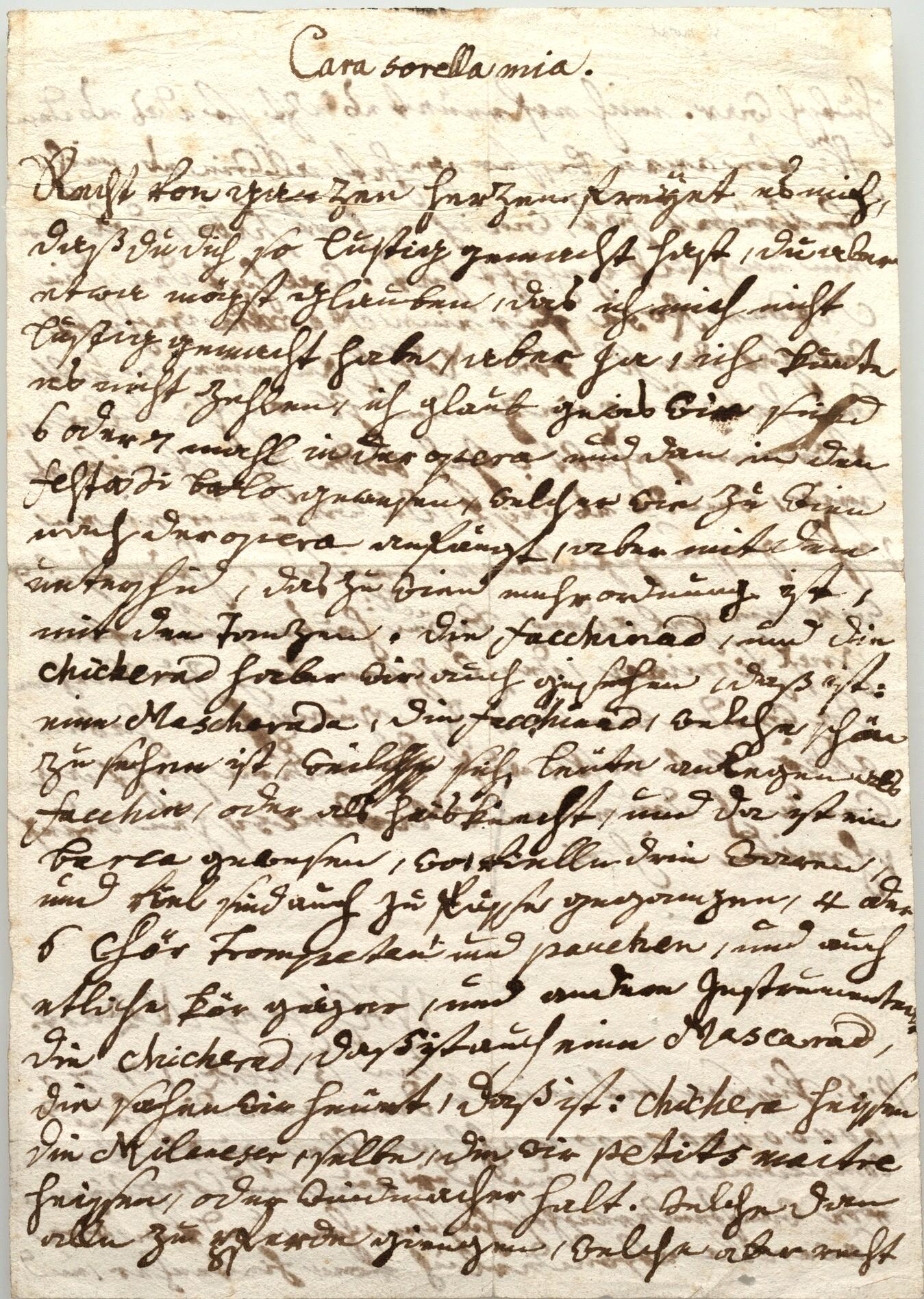

The composer’s numerous letters document his struggles and triumphs as a musician. More importantly, they provide an invaluable window into Mozart the man. And it wasn't always flattering.
Wolfgang the child was already an enthusiastic letter writer, evidenced in chatty missives during numerous trips abroad. And he was writing until the very end of his short life -- 35 years, 10 months and eight days.
Mozart wielded words as easily as he did musical notes. Sometimes he played with the words themselves. For example, he often jokingly signed letters Trazom Gnagflow, his name in retrograde.
The composer let it fly in communications with friends or family. His letters document a total contempt for authority and disdain for the upper class. He fired off these snide remarks about a patron:
“Stupidity oozes out of his eyes. He talks and carries on constantly and always in a high falsetto.”
Mozart’s letters show he knew his worth as a musical genius even though he always came up empty handed in job hunts:
"I am a composer, and I was born a Kapellmeister. I must not and cannot bury my Gift for Composing, that a benevolent God has bestowed upon me in such rich a measure."

The composer’s letters also reveal a man with a bawdy sense of humor. The language is downright scatalogical. He didn’t mean to be coarse. Mozart’s unabashedly “potty-mouthed” writing merely reflected how he was brought up.
In Mozart’s letters, we find the eternal optimist even in the most trying times. And a normal guy with a healthy sex drive. The adolescent Mozart carried on a flirtation with a cousin in a flurry of famously X-rated letters.
Mozart the married man could be tender and sentimental. While travelling, he wrote his wife:
“Tears rained upon the paper as I wrote the foregoing page, but now let us cheer up! Catch! – an astonishing number of kisses are flying about.”
Late in his life, we find the most pitiful letters Mozart ever wrote. He was deeply in debt. He sent 21 letters to Michael Puchberg, a friend and masonic brother. These missives are almost too painful to read.
That a man of his great genius would stoop to such a desperate and pathetic level of grovelling is heartbreaking. Here's a passage from July 1789:
“Great God! I would not wish my worst enemy to be in my present position. And if you, most beloved friend and brother, forsake me, we are altogether lost, both my…...self and my poor sick wife and child. Good god, I am coming to you ….with fresh entreaties….. I am asking for more money. Fate is so much against me……that even when I want to, I cannot make any money. So it all depends, my only friend, upon whether you will or can lend me another 500 gulden. Oh god! I can hardly bring myself to send this letter. And yet I must. For God’s sake, forgive me, only forgive me, and adieu.
Mozart revealed who he was thanks to a long paper trail -- the dozens of his letters he wrote. These help remind us that this in spite of his genius, Wolfgang Mozart was still just a person.
With a life of great triumph as well as tragedy.









